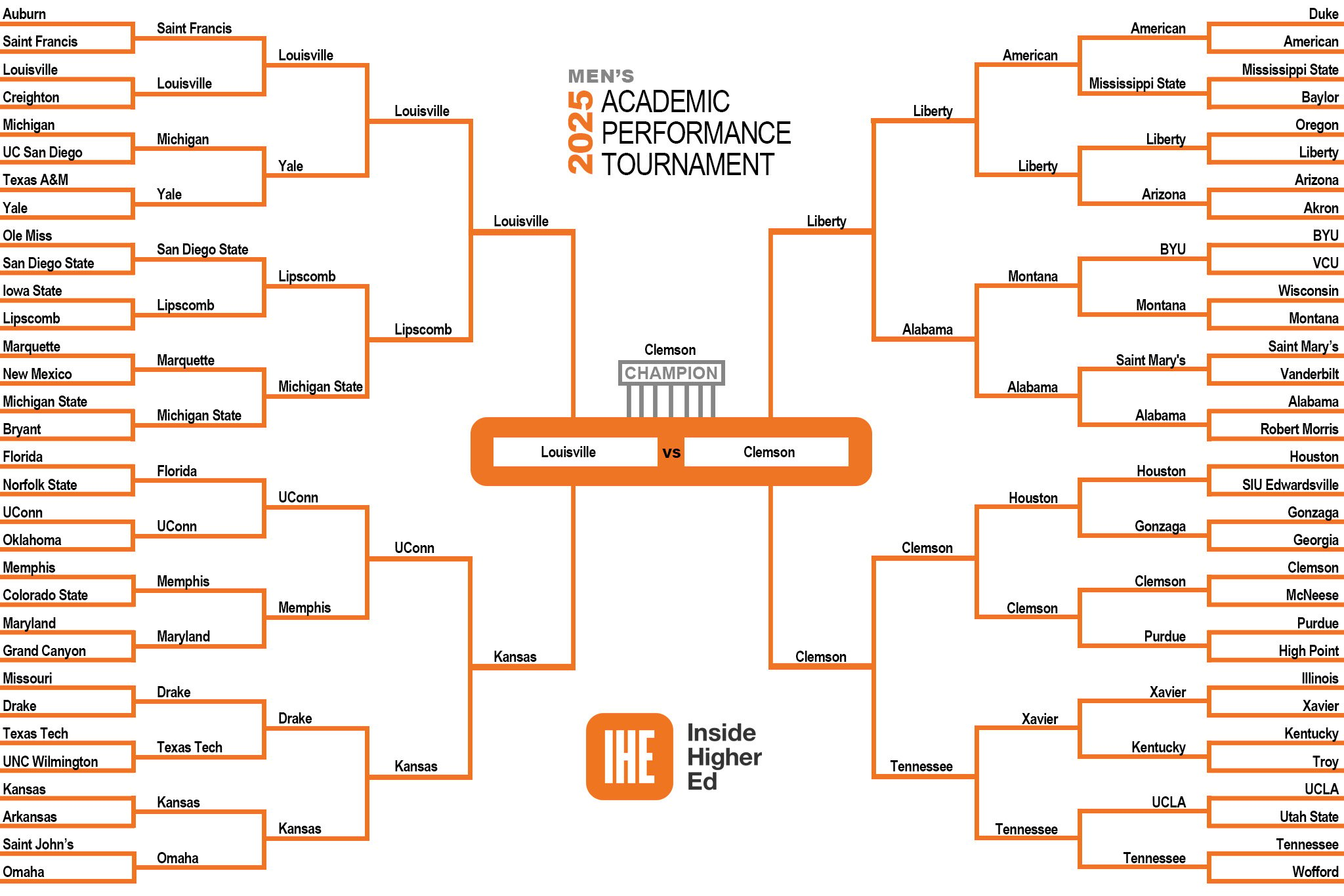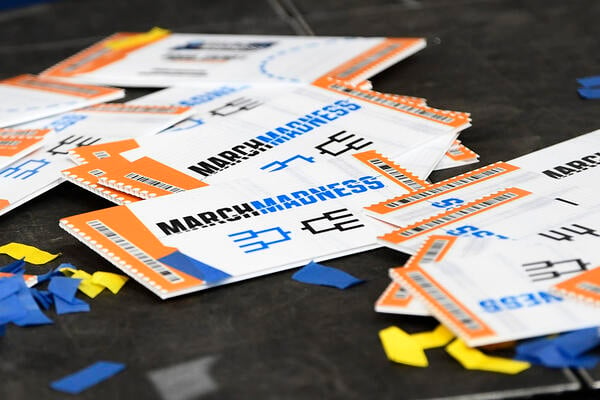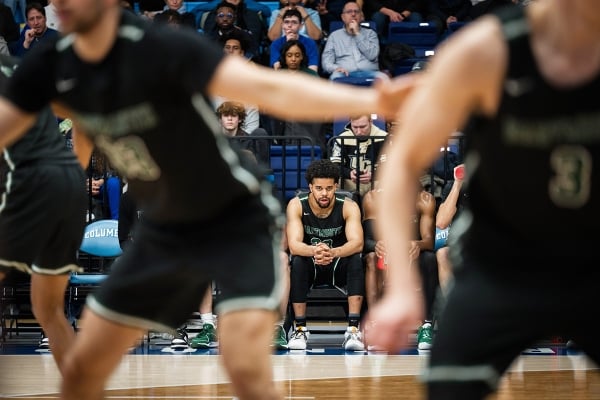March Madness officially begins Thursday with a match-up between the University of Louisville and Creighton University.
Michael Allio/Icon Sportswire/Getty Images
No shame if you forgot National Collegiate Athletic Association’s Division I basketball championships were coming up—after all, this March has been filled with more than enough madness in higher ed, even without paying attention to basketball.
Nonetheless, the biggest event in college sports kicks off this week. If you’ve been a little too concerned with the news cycle to fill out your bracket, we’re here to help. Every year since 2006, Inside Higher Ed has determined which teams would win in the men’s and women’s tournaments if the results were based on academic, rather than athletic, performance.
To determine the winners, we used the NCAA’s key academic performance metric, known as the academic progress rate, for the 2022–23 academic year, the most recent data available. The academic progress rate measures student athlete retention and academic eligibility, though some outside experts have said the metric paints an imperfect picture of a program’s academic performance.
(Full disclosure, we did use this metric to determine the winners of the First Four matchups, even though two of the four games will be determined before publication Wednesday morning.)
If two colleges had the same APR, we used 2023–24 graduation success rate, the proportion of athletes who graduated within six years of entering an institution, as tiebreakers. If teams tied again, we turned to the team’s six-year federal graduation rates, which is a more inclusive metric.
Luckily, none of the teams tied in all three categories. Still, there were a handful of nail-biting victories. For instance, the Clemson University Tigers tied the Liberty University Flames on both the academic progress and graduate success rates. But when looking at the overall graduation rate, Clemson won by one point. After besting the Flames in the Final Four, the Tigers beat out the University of Louisville to win the whole thing.

Now, the Inside Higher Ed bracket likely won’t win you any money. But there’s no bad time to celebrate the academic achievements of student athletes alongside their athletic prowess.
Congrats, Clemson Tigers!
Source link



